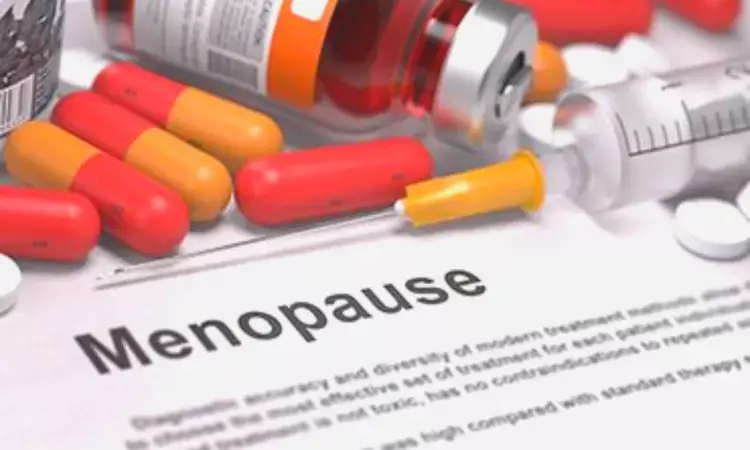- Home
- Medical news & Guidelines
- Anesthesiology
- Cardiology and CTVS
- Critical Care
- Dentistry
- Dermatology
- Diabetes and Endocrinology
- ENT
- Gastroenterology
- Medicine
- Nephrology
- Neurology
- Obstretics-Gynaecology
- Oncology
- Ophthalmology
- Orthopaedics
- Pediatrics-Neonatology
- Psychiatry
- Pulmonology
- Radiology
- Surgery
- Urology
- Laboratory Medicine
- Diet
- Nursing
- Paramedical
- Physiotherapy
- Health news
- Fact Check
- Bone Health Fact Check
- Brain Health Fact Check
- Cancer Related Fact Check
- Child Care Fact Check
- Dental and oral health fact check
- Diabetes and metabolic health fact check
- Diet and Nutrition Fact Check
- Eye and ENT Care Fact Check
- Fitness fact check
- Gut health fact check
- Heart health fact check
- Kidney health fact check
- Medical education fact check
- Men's health fact check
- Respiratory fact check
- Skin and hair care fact check
- Vaccine and Immunization fact check
- Women's health fact check
- AYUSH
- State News
- Andaman and Nicobar Islands
- Andhra Pradesh
- Arunachal Pradesh
- Assam
- Bihar
- Chandigarh
- Chattisgarh
- Dadra and Nagar Haveli
- Daman and Diu
- Delhi
- Goa
- Gujarat
- Haryana
- Himachal Pradesh
- Jammu & Kashmir
- Jharkhand
- Karnataka
- Kerala
- Ladakh
- Lakshadweep
- Madhya Pradesh
- Maharashtra
- Manipur
- Meghalaya
- Mizoram
- Nagaland
- Odisha
- Puducherry
- Punjab
- Rajasthan
- Sikkim
- Tamil Nadu
- Telangana
- Tripura
- Uttar Pradesh
- Uttrakhand
- West Bengal
- Medical Education
- Industry
Hormone therapy not recommended for primary prevention of chronic conditions after menopause: USPSTF

USA: The use of combined estrogen and progestin has no net benefit for the primary prevention of chronic conditions in postmenopausal persons, the U.S. Preventive Services Task Force (USPSTF) has advised in its update to 2017 recommendation.
The USPSTF in its report published in JAMA, also recommends against the use of estrogen alone for the primary prevention of chronic conditions in postmenopausal persons who have had a hysterectomy. (D recommendation)
For updating its 2017 recommendation, the USPSTF commissioned a systematic review to assess the harms and benefits of systemic (ie, oral or transdermal) hormone therapy for the prevention of chronic conditions in postmenopausal persons. They also strive to determine whether outcomes vary by age or by the timing of intervention after menopause.
Menopause is defined as the cessation of the menstrual cycle; it is defined retrospectively, 12 months after the final menstrual period. Perimenopause, or the menopausal transition, is the few-year time period preceding the final menstrual period of a person and is characterized by increasing variability of menstrual cycle length and amenorrhea periods, and often symptoms such as vasomotor dysfunction.
The prevalence and incidence of most chronic diseases increase with age, and US persons who reach menopause are expected on average to live more than another 30 years, Carol Mangione, the University of California Los Angeles, and colleagues reported.
The updated guideline is harmonious with those from several other medical organizations, including the American Academy of Family Physicians, the North American Menopause Society, and the American College of Obstetricians and Gynecologists.
The updated recommendations apply to asymptomatic postmenopausal persons who are considering hormone therapy for the primary prevention of chronic medical conditions. They also don't apply to women who are trying to manage menopause-related symptoms like hot flashes.
The updated recommendation was based on a systematic review of 21 randomized clinical trials and three cohort studies. There was a significantly lower risk seen for colorectal cancer over 5.6 years, diabetes over 5.6 years, and fractures over 5 years in individuals using estrogen plus progestin compared with placebo, according to studies. However, this was offset by a significantly higher risk for other conditions, such as invasive breast cancer, stroke, venous thromboembolism (VTE), gallbladder disease, probable dementia, and urinary incontinence.
Over a 7-year follow-up, those using estrogen alone also saw a significantly lower risk of developing fractures and diabetes. The harms also outweighed the benefits of estrogen-only therapy, as there was a significantly greater risk of developing gallbladder disease, stroke, VTE, and urinary incontinence.
The USPSTF concluded with moderate certainty that combined estrogen and progestin use for the primary prevention of chronic conditions in postmenopausal persons with an intact uterus has no net benefit.
The USPSTF concludes with moderate certainty that the use of estrogen alone for the primary prevention of chronic conditions in postmenopausal persons who have had a hysterectomy has no net benefit.
Reference:
US Preventive Services Task Force. Hormone Therapy for the Primary Prevention of Chronic Conditions in Postmenopausal Persons: US Preventive Services Task Force Recommendation Statement. JAMA. 2022;328(17):1740–1746. doi:10.1001/jama.2022.18625
Dr Kamal Kant Kohli-MBBS, DTCD- a chest specialist with more than 30 years of practice and a flair for writing clinical articles, Dr Kamal Kant Kohli joined Medical Dialogues as a Chief Editor of Medical News. Besides writing articles, as an editor, he proofreads and verifies all the medical content published on Medical Dialogues including those coming from journals, studies,medical conferences,guidelines etc. Email: drkohli@medicaldialogues.in. Contact no. 011-43720751


